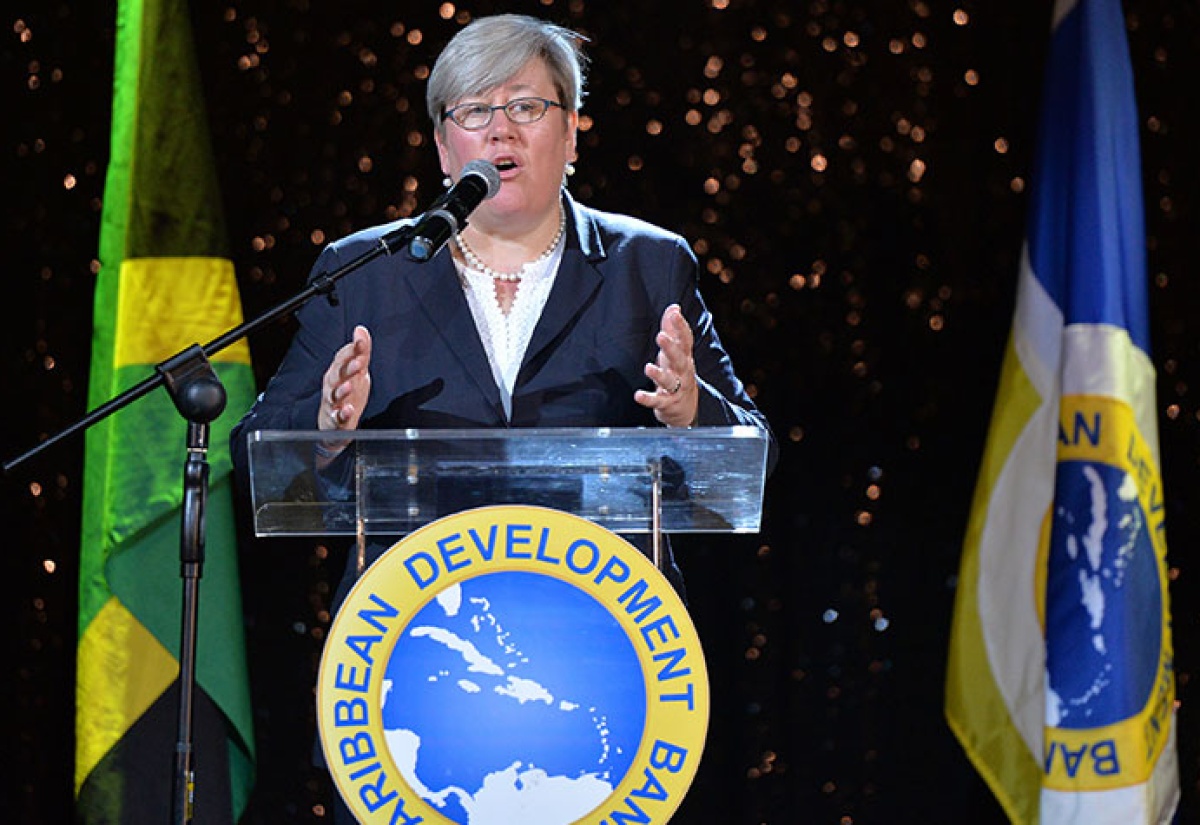UN Ready to Help Region Secure Clean Energy Future
By: , May 20, 2016The Key Point:
The Facts
- Ms. Kyte pointed out that CDB has an essential role to play in providing financing for sustainable energy projects.
- Ms. Kyte said that the Caribbean region will need to demand in very precise terms what it needs from the world as part of its regional drive to free itself from expensive, unreliable power, managed not for “we the peoples,” but for just a few.
The Full Story
Chief Executive Officer of United Nations (UN) Sustainable Energy for All, Rachel Kyte, says her organisation is ready to partner with Caribbean governments and institutions in securing a clean, affordable and reliable energy future.
She was delivering the William G. Demas Memorial Lecture at the Caribbean Development Bank’s (CDB) 46th Annual Board of Governors Meeting at the Iberostar Resort in Lilliput, St. James, on May 17.
Sustainable Energy for All is the brainchild of UN Secretary-General, Ban Ki-moon. Its main objectives are ensuring universal access to modern energy services and doubling the global rate of improvement in energy efficiency and the share of renewables in the global energy mix.
Ms. Kyte said energy demand is not only the dominant contributor to climate change, but is central to nearly every major challenge and opportunity the world faces today.
She noted that there are 1.1 billion people around the world who still have little or no access to energy, and three billion who rely on wood, coal, charcoal or animal waste for cooking and heating.
“We the peoples of the UN want a planet and a future that’s not ravaged by climate change. We the peoples deserve access to affordable, clean and reliable energy and we the peoples know that the time for action is now,” she said.
Ms. Kyte noted that the impacts of climate change are being felt all around the world, particularly in the Caribbean. She added that rainfall patterns are changing, which have caused a series of islands to experience prolonged dry seasons and severely low reservoir levels.
“This severely impacts the ability of island nations to grow local crops,” she pointed out, citing loss of an estimated 2,190 hectares of crops valued at millions of dollars in Jamaica due to drought.
Ms. Kyte pointed out that CDB has an essential role to play in providing financing for sustainable energy projects.
She noted that the priorities of the regional entity should be oriented to the imperatives of its members as expressed in the Sustainability Development Goals contained in the Paris Agreement.
The agreement, signed by nearly 200 countries in Paris, France, last year, is a commitment by world leaders to ramp up climate mitigation and adaptation worldwide.
“In Paris, it was the High Ambition Coalition, led by some small island developing nations that provided the impetus for the boldest parts of the agreement,” Ms. Kyte noted.
“The small islands helped the mighty powers to find their true worth. The Alliance of Small Island States has, since the late 1980s, spoken truth to power in the context of climate change,” she pointed out.
Ms. Kyte said that the Caribbean region will need to demand in very precise terms what it needs from the world as part of its regional drive to free itself from expensive, unreliable power, managed not for “we the peoples,” but for just a few.


